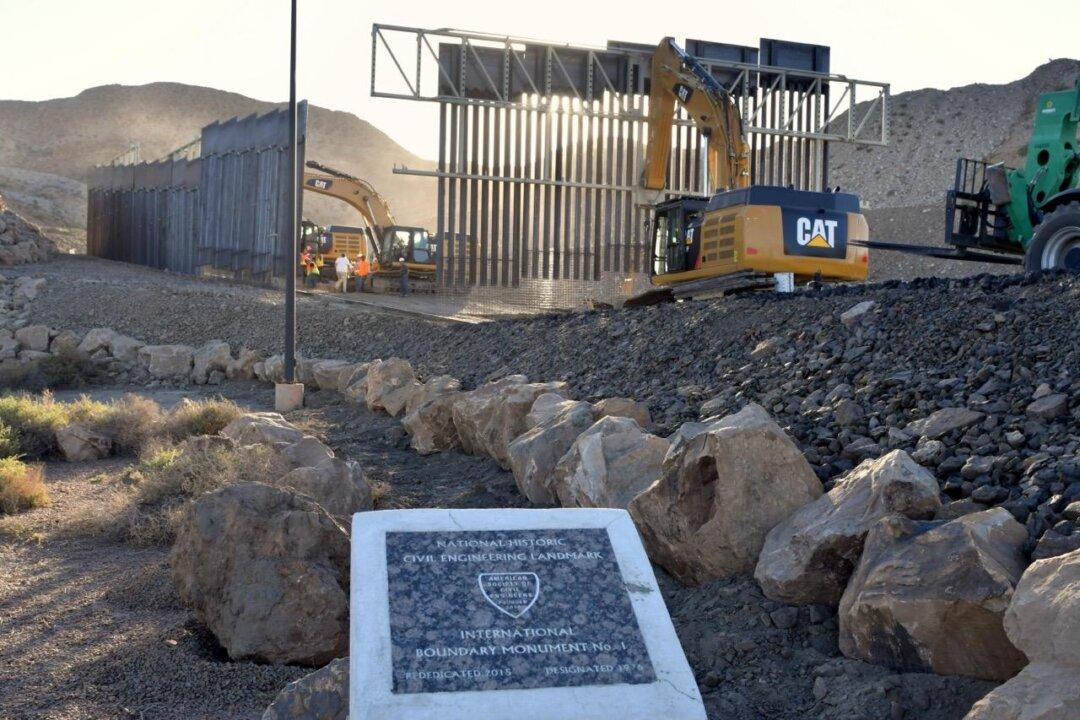An Air Force veteran who lost three limbs in the Iraq War has built a wall on a short section of the U.S.-Mexico border, delivering on a promise to hundreds of thousands of donors.
Brian Kolfage raised more than $22 million and plans to build the wall mile-by-mile in strategic locations, getting permits from local private landowners.





